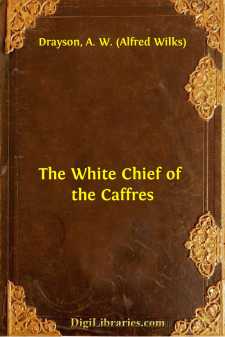Categories
- Antiques & Collectibles 13
- Architecture 36
- Art 48
- Bibles 22
- Biography & Autobiography 813
- Body, Mind & Spirit 142
- Business & Economics 28
- Children's Books 14
- Children's Fiction 11
- Computers 4
- Cooking 94
- Crafts & Hobbies 4
- Drama 346
- Education 46
- Family & Relationships 57
- Fiction 11828
- Games 19
- Gardening 17
- Health & Fitness 34
- History 1377
- House & Home 1
- Humor 147
- Juvenile Fiction 1873
- Juvenile Nonfiction 202
- Language Arts & Disciplines 88
- Law 16
- Literary Collections 686
- Literary Criticism 179
- Mathematics 13
- Medical 41
- Music 40
- Nature 179
- Non-Classifiable 1768
- Performing Arts 7
- Periodicals 1453
- Philosophy 64
- Photography 2
- Poetry 896
- Political Science 203
- Psychology 42
- Reference 154
- Religion 513
- Science 126
- Self-Help 84
- Social Science 81
- Sports & Recreation 34
- Study Aids 3
- Technology & Engineering 59
- Transportation 23
- Travel 463
- True Crime 29
A. W. (Alfred Wilks) Drayson
Alfred Wilks Drayson (1827–1901) was a British army officer, author, and lecturer known for his works on astronomy, military subjects, and the paranormal. He wrote several books, including "The Earth We Inhabit" (1857), which proposed a controversial theory about the Earth's motion. Drayson also contributed to military literature with titles such as "Practical Military Surveying and Sketching" (1859). In addition to his scientific and military interests, he explored spiritualism and the supernatural, notably in "The Art of Practical Whist" (1879), where he combined his expertise in logic and probability with card games.
Author's Books:
Sort by:
Chapter One. I was born in the city of Delhi, in Central India, where my father held a command as major in the old East India Company’s service. I was an only son, and my mother died shortly after I was born. I resided at Delhi until I was ten years of age. Having been attended as a child by an ayah, and afterwards taught to ride by one of my father’s syces, I learned to speak Hindostani before I...
more...
Preface. In the history of colonisation there is probably no example on record so extraordinary as that of the emigration from the colony of the Cape of Good Hope, in 1835, of nearly six thousand souls, who, without guides or any definite knowledge of where they were going or what obstacles they would encounter, yet placed their all in the lottery and journeyed into the wilderness. The cause of this...
more...



